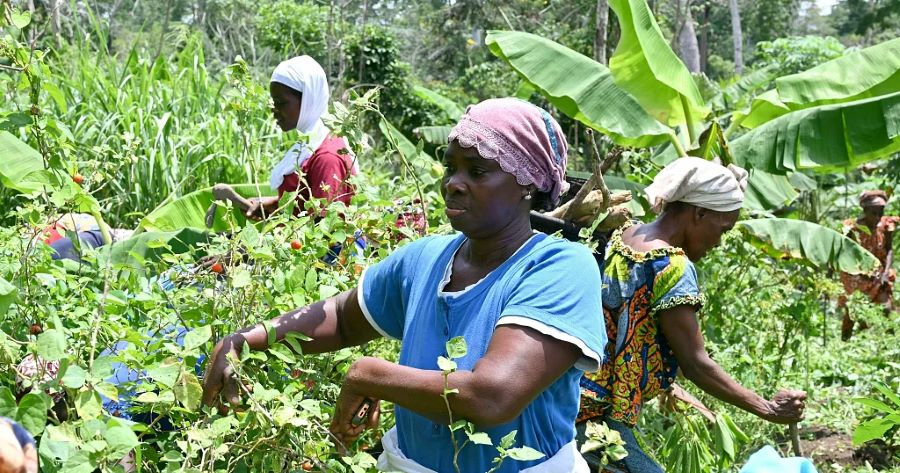(3 Minutes Read)
According to a U.K.-funded study in Ivory Coast in 2020, 42.9% of women in the country work in agriculture, more than any other sector. Yet women are more vulnerable in the agricultural domain because customs around land favor men
In the village of Fapaha in the north of Ivory Coast, women have formed a cooperative to grow vegetables and sell their produce on the market, allowing them to raise money for their families without relying on handouts.
The project has benefited from the help of the World Food Programme, which has provided them with agricultural tools and ways to sell their produce to the local school canteen.
The farming project also allows women to become the main players in the life of the village. They have achieved an important place in rural society, which generally tends to be male-dominated. During the cooperative’s collaboration with the village school cafeteria in 2022 and 2023, they were able to produce 25 tons of vegetables on 99 acres (40 hectares) and 10 tons of legumes on 44 acres (18 hectares).
According to a U.K.-funded study in Ivory Coast in 2020, 42.9% of women in the country work in agriculture, more than any other sector. Yet women are more vulnerable in the agricultural domain because customs around land favor men.
Read Also:
https://trendsnafrica.com/imf-usd-1-3-bn-climate-finance-for-ivory-coast/
Only 8% of women own land, as opposed to 22% of men. When women get married, they often lose access to land in case of the death of their husband, in which case they are expected to return to their pre-marital family.





